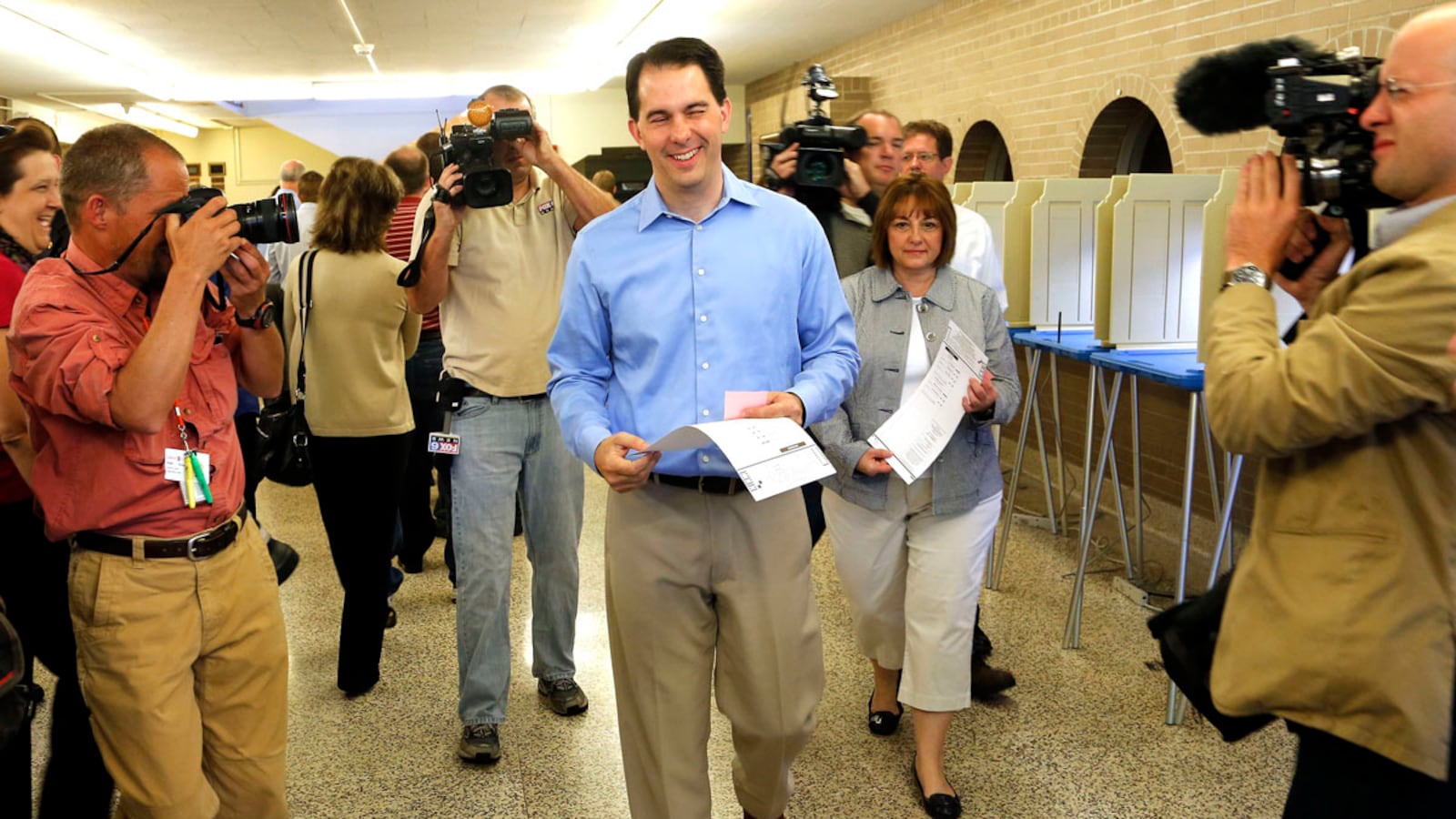Scott Walker narrowly held on to his job as Wisconsin’s governor on Tuesday, surviving a labor-backed recall drive loudly trumpeted as a national showdown over public-employee unions.

But for all the attention lavished on the Republican governor’s contest with Milwaukee Mayor Tom Barrett, the only flaw in the storyline was that unions were never the campaign’s focus.
NBC projected Walker the winner just 50 minutes after the polls closed, followed closely by Fox News and CNN.
Despite the media’s inherent and sometimes inane tendency to overanalyze special elections, the Wisconsin battle may well have implications for the presidential campaign.
For one thing, the exit polls provided a snapshot, with President Obama leading Mitt Romney 53 to 42 percent—with more voters saying Obama would do a better job of handling the economy. Of course, the electorate in November may differ in size and ideological makeup.
With more than $63 million pouring into the race, voters on both sides became more energized—and more polarized. This could move the needle in a state that has voted Democratic in every presidential election since 1984.
At the same time, it will be hard to hang Barrett’s loss around Obama’s neck, since his effort for the campaign was largely composed of a single tweet. The Obama brain trust decided not to risk a presidential appearance in Wisconsin. And given the lack of contribution limits in a recall, Walker was able to outspend the mayor by 10 to 1—which will hardly be the case in November.
Further muddying the waters is the fact that this is only the third recall of a governor in American history (the last being California’s Gray Davis in 2003). Some voters may have backed Walker on grounds that, with no allegations of corruption, it’s unfair to eject a sitting governor over policy differences. In fact, six in 10 of those questioned in early CBS exit polls said recalls should be reserved for official misconduct.
Still, Walker’s victory is an undeniable setback for organized labor, which spearheaded the campaign by helping to gather some of the more than 1 million signatures on recall petitions. And the June election was also a test of get-out-the-vote strength, with Barrett’s allies spending twice as much as the governor’s side to mobilize voters.
Walker infuriated the opposition when, months after taking office last year, he pushed through legislation that effectively ended collective-bargaining rights for most state workers, triggering massive street protests. Walker defended the move in the campaign’s final debate, saying “we drew a line in the sand” and that public employees needed to pay more for their benefits.
Barrett framed the issue as one of punishing political enemies, saying in the debate that Walker was trying to turn Wisconsin into the “Tea Party capital of this country.”
But in yet another affirmation that all politics is local, some of Barrett’s ads dealt with a criminal probe that could implicate Walker aides from his tenure as a county executive, while Walker’s ads highlighted flawed crime reports by the Milwaukee police.
With several cable-news anchors reporting from Milwaukee, such distinctions are likely to be lost in the torrent of punditry over the recall.






